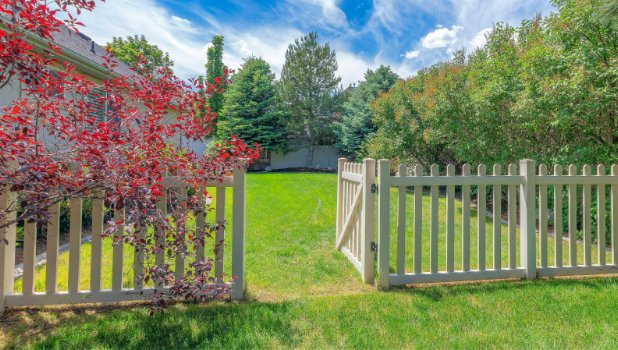When it comes to enhancing the appeal and security of a home, many homeowners ponder whether installing a fence is a worthwhile investment. The answer could be more straightforward: adding a fence can increase the property value under certain conditions. The material and construction quality, the purpose behind installing the fence, and the property’s location are pivotal in determining its value addition.
Reasons to Add a Fence
Homeowners opt for fencing for a multitude of reasons, each contributing differently to the property’s overall value:
- Privacy and Security: A well-built fence can offer a sense of seclusion and deter potential intruders, making it a valuable addition in areas where privacy and security are top priorities.
- Safe Spaces: For families with pets or children, fences create safe outdoor environments free from the risks posed by nearby traffic or open streets.
- Aesthetic Appeal: Aesthetic improvements or curb appeal enhancements can significantly impact a home’s marketability and value. A fence that complements the home’s architectural style can make the property more attractive to potential buyers.
- Sound Dampening: Fences can reduce noise pollution from busy streets, creating a more serene living environment.
- Utility Bill Reduction: By blocking wind and sun, certain fence designs can contribute to lower heating and cooling costs.
Types of Fences and Their Advantages
The material and design of a fence greatly influence its effectiveness and the value it adds to a property.
Wood Fences: From classic picket fences to tall privacy barriers, they are celebrated for their versatility and cost-effectiveness. They can be tailored to match a home’s aesthetic, offering beauty and functionality.
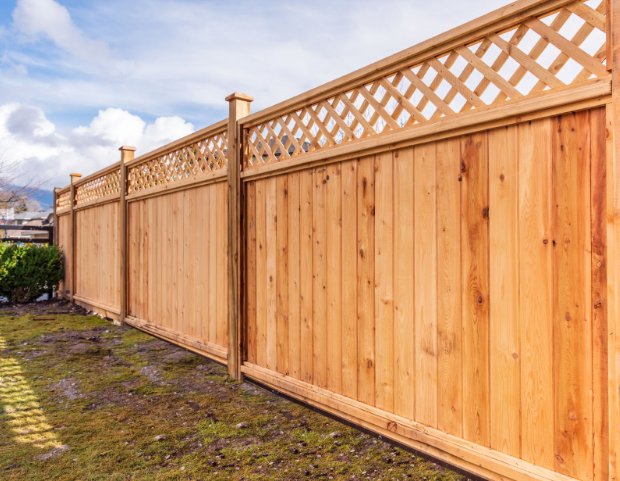
Decorative Metal Fences: Steel fences, known for their durability and design versatility, can enhance a property’s curb appeal significantly. While generally requiring professional installation, their maintenance needs are minimal, making them a long-term investment in security and style.

Aluminum Fences: Offering many benefits of their decorative metal counterparts without the same design sophistication, aluminum fences are lightweight and relatively easy to install. However, their design often limits privacy.
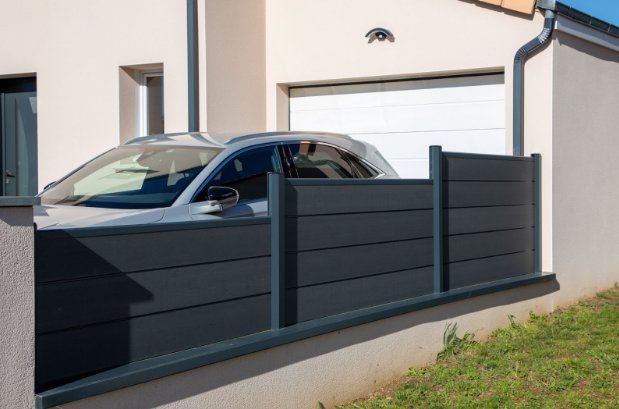
Chain Link Fences: These are among the most affordable and easiest to install. While not the first choice for aesthetics or privacy, they’re practical for delineating boundaries and keeping pets and children safe.
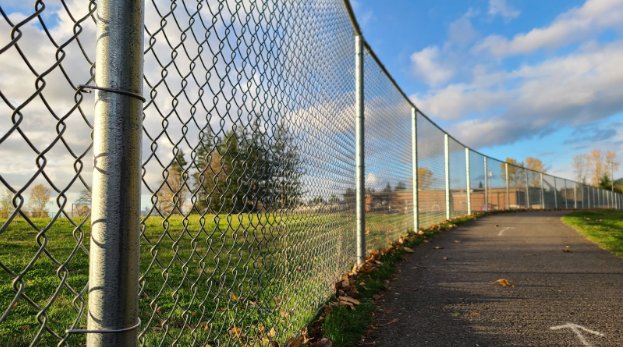
Composite Fences: A blend of wood and plastic, composite fences offer the look of wood without extensive maintenance. Their higher upfront cost may be a consideration, though their durability and low maintenance needs can make them a valuable addition.
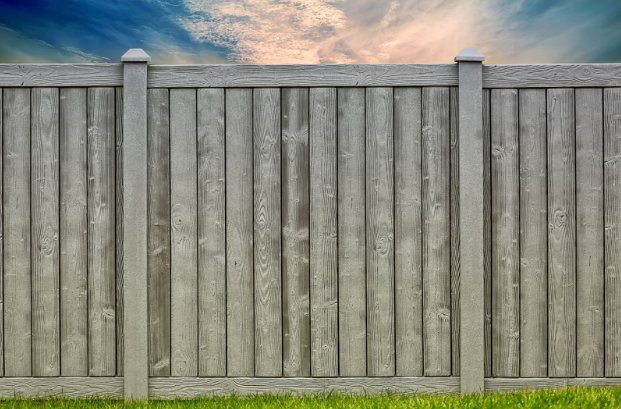
Vinyl Fences: As one of the more costly options, vinyl fencing stands out for its durability, low maintenance, and versatility. It’s an excellent choice for homeowners seeking a balance between aesthetics, privacy, and minimal upkeep.
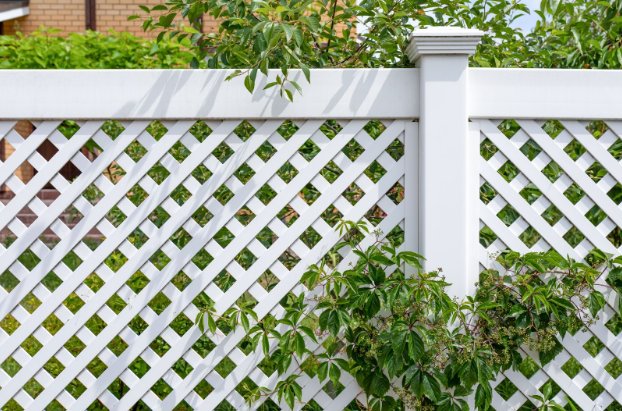
Assessing the Impact on Property Value
A fence enhances a property’s value, especially when it increases curb appeal, adds privacy, or improves security. However, the impact on property value varies, depending on whether the fence style and material align with the home’s design and the neighborhood’s standards.
A fence that looks out of place or needs to be better maintained may detract from the home’s appeal, whereas a thoughtfully chosen fence that complements the property can make it stand out in the real estate market. It’s also worth considering local preferences and requirements; certain types of fences may be more highly valued in some areas.
Summary
Installing a fence can be a smart investment, potentially increasing a home’s market value while enhancing its appeal and functionality. The key to maximizing this investment lies in choosing the right type of fence that aligns with the homeowner’s needs, complements the property’s style, and meets the local market’s expectations.
Before proceeding, homeowners should carefully consider their reasons for adding a fence, evaluate the materials and styles available, and assess how well these options mesh with their property’s overall aesthetic and functional needs. With the right approach, a fence can be more than just a boundary—it can be a significant value addition to the property.
FAQs
How much does it typically cost to install a fence, and will this cost be offset by the increase in property value?
The cost of installing a fence varies widely based on materials, length, and labor. For instance, a wood fence may cost between $1,500 – $3,000 on average, while vinyl or metal options can be higher. While a fence can increase property value, especially in terms of curb appeal and security, the exact offset will depend on your local real estate market and the fence’s quality and style.
Are there any specific fence styles or materials that are known to add more value than others?
Decorative metal fences and high-quality wood fences generally add more value due to their aesthetic appeal and durability. Vinyl fences also add significant value due to their low maintenance and longevity. The key is choosing a style that complements your home and meets practical needs like privacy and security.
How does fence maintenance impact its value-adding potential?
Regular maintenance is crucial to ensure a fence continues to add value. Neglected fences that appear worn or damaged can detract from curb appeal, reducing the property’s overall value. Well-maintained fences, on the other hand, contribute positively to the property’s appearance and functionality.
Get the right coverage for your home with tutenagency
New tutenagency customers?
Quote homeowners insurance online or call (334) 502-5111 to insure your home.
Disclaimer: This content is for informational purposes only and should not be considered legal or financial advice. Always consult with qualified professionals in legal and financial fields before making any decisions.

